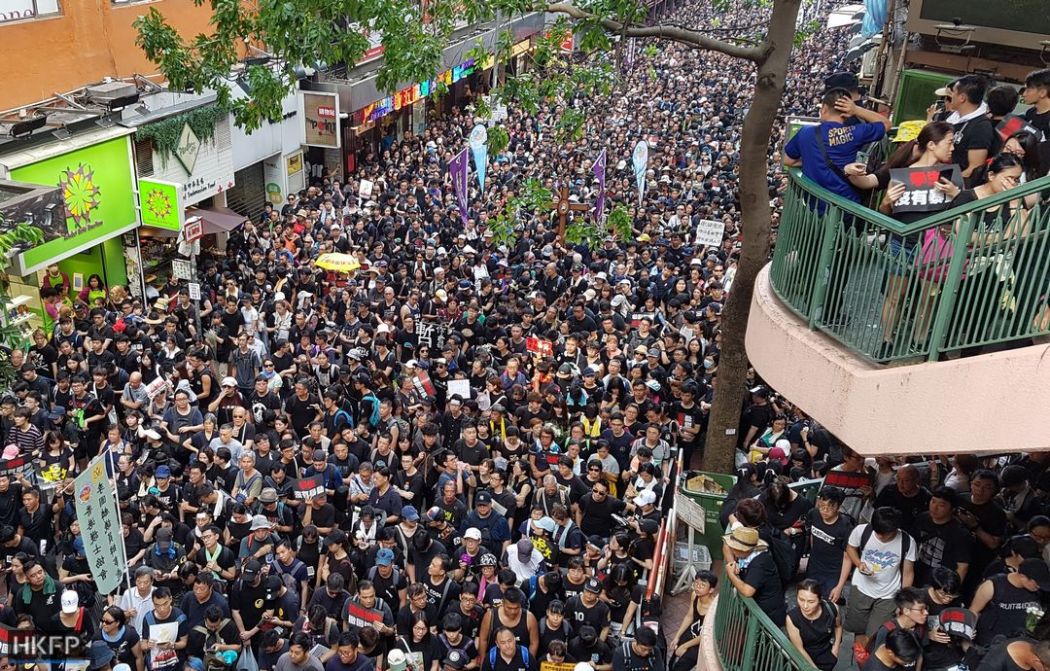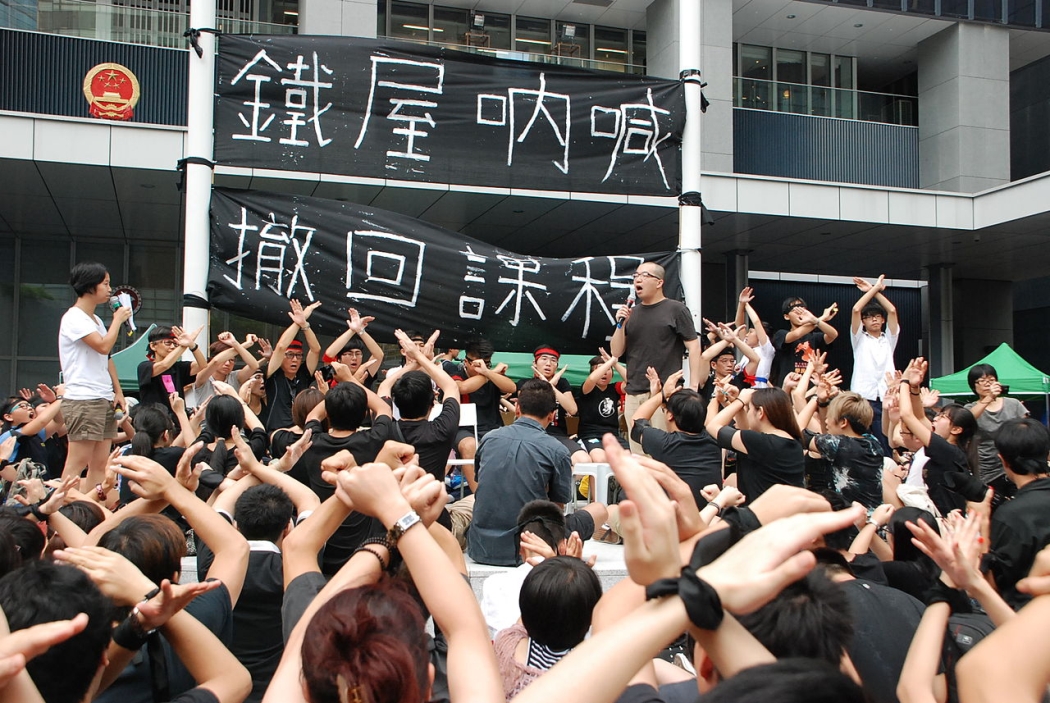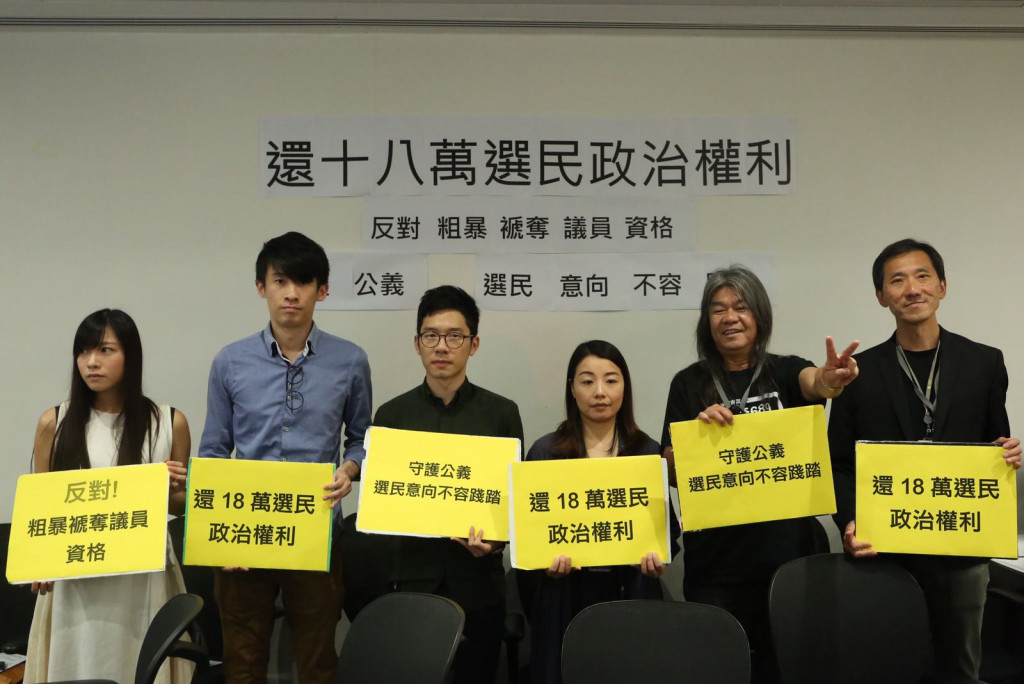Hongkongers may already appear to be winning the battle against the proposed extradition law amendment after the government announced its indefinite suspension of the bill last Saturday.
However, Hongkongers are not celebrating this “partial victory” as the end of their fight.

A 35-year-old protester, Marco Leung, lost his life hours after Chief Executive Carrie Lam made the announcement. He unfurled a banner that read, “No extradition to China, total withdrawal of the extradition bill, we are not rioters, release the students and injured, Carrie Lam step down, help Hong Kong” before he fell from a podium last Saturday.
Alex Yeung, a witness of the tragedy, said he was extremely shocked and saddened to see someone giving up on life because of the hopelessness he felt for Hong Kong’s future.
“Speaking from experience, even though [Lam] suspended the bill, she will only stage some public consultations, ignore all the opposing voices, and push it forward again,” Yeung said.
The day after, nearly two million people—one-third of Hong Kong’s population—took to the streets to insist on their demand for a total withdrawal of the bill and mourn Leung’s passing. Then protesters threatened further escalation unless Lam fulfilled all five of their demands by Thursday evening.
Those demands included the complete withdrawal of the bill, rescinding the labelling of the June 12 protests as a “riot,” the release of arrested protesters, a thorough investigation into incidents of police brutality, and Lam’s immediate resignation.

Initially proposed to amend the Fugitive Offenders Ordinance, the unpopular extradition bill would render anyone in Hong Kong a potential subject of extradition to any jurisdiction, including mainland China. Many are concerned that it would allow the Chinese government to persecute dissidents and threaten the freedoms of journalists and political activists.
While the suspension means halting the bill’s second reading in the legislature, the bill is only put on pause. The second reading could be restarted at any time with another notice from the Chief Executive. Therefore – despite assurances – the suspended extradition bill is still potentially an active proposal until the current term of the Legislative Council ends in July 2020.
Although foreign media hailed the bill’s suspension as a success for protesters in Hong Kong, popular distrust of the government’s credibility has outweighed the excitement of the “partial victory”.
In 2012, a student-led siege of the government headquarters erupted after demands for the withdrawal of the compulsory national education programme in secondary schools were ignored by the government. Much of the curriculum’s content was found to be biased in favour of the Chinese Communist Party, leading many to criticise it as a “brainwashing” programme.

The students’ occupation of the government headquarters lasted ten days, drawing crowds of up to 100,000 people, until the then-Chief Executive, Leung Chun-ying, announced that the curriculum’s implementation would be optional.
Despite its success, some felt discontented about ending the movement without the curriculum’s full withdrawal, leaving the government with the possibility of reintroducing the curriculum in the future.

Years later, the government has implemented the national education programme in a piecemeal fashion through other methods, such as amending parts of Chinese history textbooks and adding biassed materials into existing classes – all done with minimal public scrutiny.
In recent years, the Chinese government’s intervention in Hong Kong’s domestic affairs has become commonplace. For example, five booksellers that sold titles prohibited in China were abducted to the mainland in 2015.
In 2016, Chinese authorities interpreted the Basic Law, the city’s constitution, to bar young candidates from running for the Legislative Council elections on the basis of their political platform. After that, six democratic legislators were disqualified in a similar fashion, even after being elected.

Although the Basic Law technically safeguards Hong Kong’s autonomy from the Chinese government, citizens are increasingly sceptical about the credibility of Hong Kong’s government, which has routinely worked for the Chinese government and welcomed intervention from Chinese authorities.
Echoing the sentiments of most Hongkongers, Yeung said Carrie Lam’s attitude of ignoring the two million people who marched on the streets and Leung’s tragic suicide has stirred up more dissatisfaction with the government.
“Everyone knows the Chinese Communist Party is not trustworthy with its broken reputation,” Yeung said. “For instance, I don’t enjoy any right to vote for our Chief Executive in 2017, a right promised by the Basic Law.”
Over the past decade, the government has failed to maintain a good relationship with the people, who feel increasingly uncertain about the future of their home. Although this anxiety will continue to plague society, the complete withdrawal of the bill is an essential step to addressing the public outrage unleashed by the mismanagement of this crisis by Lam—a leader who was chosen not by the people but by a chamber of a mere 1,200.
If you are experiencing negative feelings, please call: The Samaritans 2896 0000 (24-hour, multilingual), Suicide Prevention Centre 2382 0000 or the Social Welfare Department 2343 2255. The Hong Kong Society of Counselling and Psychology provides a WhatsApp hotline in English and Chinese: 6218 1084. See also: HKFP’s comprehensive guide to mental health services in Hong Kong

The Hong Kong Free Press #PressForFreedom 2019 Funding Drive seeks to raise HK$1.2m to support our non-profit newsroom and dedicated team of multi-media, multi-lingual reporters. HKFP is backed by readers, run by journalists and is immune to political and commercial pressure. This year’s critical fundraiser will provide us with the essential funds to continue our work into next year.

